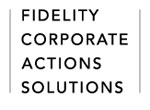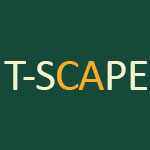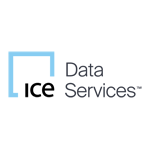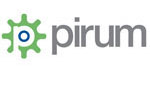CorpActions 2018
Welcome to CorpActions 2018, Wednesday, October 3rd at Canary Wharf
As ever this agenda is a work-in-progress and we proceed towards the event in October. We will be including additional speakers, greater detail and more surprises as we go. We also have a new venue for 2018 with higher capacity and more accessible for our attendees, in the heart of Canary Wharf.
| 8.15 | Registration Opens
|
Morning refreshment and pastries
Meet the exhibitors including product demonstrations and begin networking with your peers from across Europe |
|
| 8.50 | Chairman's Welcome
|
James Cunningham, Managing Director and Senior Advisor, Office of Public Policy and Regulatory Affairs, The Bank of New York Mellon |
|
| 9.00 | Chairman's Overview: A Review Of The Big Changes Affecting The Corporate Actions World, The Drivers Behind Them and The Key Discussions Of The Day
|
James Cunningham, Managing Director and Senior Advisor, Office of Public Policy and Regulatory Affairs, The Bank of New York Mellon |
|
| 9.30 | Regulatory Challenges and Opportunities |
Virginie O'Shea, Research Director, Aite Group |
|
| 10.15 | Harmonisation and Standardisation Developments - T2S and Market Player Adaptions
|
- The Single Rulebook For Collateral Management: A review of the developing harmonisation rules for processing events on securities used as collateral. Particularly Eurosystem eligible debt instruments and around business processes and workflows. What is driving compliance? Jacques Littré, Lead Analyst, Standards, SWIFT |
|
| 11.00 | Networking Break with Vendor Demonstrations
|
| 11.30 | Corporate Governance and Proxy Voting
|
A review of the latest developments within corporate governance, with a particular focus upon the requirements of the Shareholder's Directive and transparency.
Edwin De Pauw, Director, Head of Project Management Europe, Euroclear Werner Frey, Managing Director, Post Trade, AFME Demi Derem, General Manager, Investor Communication Solutions International, Broadridge Financial Solutions Pierre Colladon, Senior Advisor, Strategy for Market Infrastructures, Societe Generale Securities Services Dr. Markus Kaum, Attorney at Law, Munich Re |
|
| 12.15 | Corporate Actions in the Front Office: Generating Alpha
|
Corporate actions have come to be seen not just as a post-trade activity, but also an area of interest for the front office as firms seek to leverage arbitrage opportunities. Simon Bennett, Independent Consultant, Domain Matters |
|
| 13.00 | Networking Lunch
Meet the exhibitors and network with your peers |
| 2.15 | Automation and Disruptive Technology
|
Traditional levers to reduce cost such as process re-engineering, off-shoring and reductions in force are reaching their limits, near exhaustion. End User Solutions (Excel Macros etc) are fragmented with swivel chair processing, manual data movements, manual recs bringing errors, rework and inconsistent delivery. The growing awareness of sophisticated FinTech solutions and therefore their supply are growing fast. The goal is to reduce costs and risk, to gain market share among competitors and win new clients. We outline what some firms have been doing, what results they are finding and what comes next so that you can benchmark this against your own efforts and judge its utility against the costs and time resources, for your organisation. Some consideration will be given to the following areas, among others: John Kirkpatrick, MD, Global Head of Asset Servicing, JP Morgan Securities Services |
|
| 3.15 | Networking Break with Vendor Demonstrations
Afternoon refreshment and pastries |
| 3.45 | Buyside Drill-Down: A Look At The Needs Of The End Investors
|
What is the current STP benchmark for corporate actions processing and asset servicing as whole? Paul Sinthunont, Buyside Analyst, AITE Group (moderator) |
|
| 4.15 | Taxation and Reporting
|
An interactive session looking at taxation, reporting and compliance issues in the areas of corporate actions processing and asset servicing. Ross McGill, Chairman, T-Consult |
|
| 5.00 | Chairman's Closing Remarks
|
James Cunningham, Managing Director and Senior Advisor, Office of Public Policy and Regulatory Affairs, The Bank of New York Mellon |
|

















